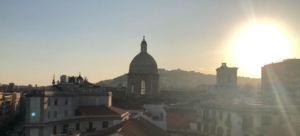My Study Abroad Experience: Kristin John
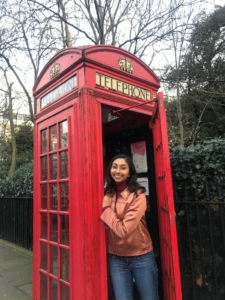 Where and when did you study abroad/off-campus?
Where and when did you study abroad/off-campus?
I studied abroad during my Junior Spring in London, England on the London Internship Program, Finance & Economics Track.
What did you do for your internship and what kinds of projects were you assigned (if you had one)?
I had the wonderful opportunity to work at KPMG, one of the “Big Four” accounting firms. I was a member of KPMG International’s Global Corporate Citizenship team, which is in charge of the firm-wide corporate social responsibility initiatives. I worked on quantifying the whole company’s social impact initiatives into reportable material for analysis—I analyzed the annual impact reports for KPMG’s many global offices and consolidated these statistics. This was challenging as each office had a very different way of stating their impacts, so I worked with my team to provide guidelines going forwards on how to report measurable impact. I also worked on a project to compare and contrast different impact investment principles as my team’s client was looking to develop a new set of principles for the City of London. A final project I worked on was assessing fossil fuel clients’ progress in sustainable development to share with account managers as talking points to further develop the client-advisor partnerships.
What are two things you learned from your time abroad/off-campus that you may not have learned otherwise?
- I studied abroad in the midst of Brexit, so becoming fully engaged in this huge historical shift is something I know I would not have had otherwise. It was interesting to see first-hand how the British people reacted to this, and I became fully aware of how Brexit would affect different populations. We also discussed Brexit in my classes, allowing me to have an analytical and factual view on the current event. The experience of observing a country go through this magnitude of change was extremely eye-opening.
- I would not have learned how education works outside of the American system. Taking classes abroad and learning about my British colleagues’ college experiences was incredibly interesting. The British education system is one of the best in the world and is ingrained into so many countries around the world. Learning about what they prioritize in education and how they teach students by experiencing a different grading structure myself was helpful. I became a better learner by embracing the best parts of both the American and British systems. I also learned how to understand British people’s different perspectives as a root of their education systems.
What surprised you most about your time abroad/off-campus?
I was surprised with how integrated we were into the city and country. This was mainly due to the internship aspect, as I woke up and went to work like the rest of the city. We were also centrally located in South Kensington, a 5-minute walk away from world-class museums and Kensington Palace itself.
What was the hardest part of your experience?
The hardest part of my experience was coming to the realization that this experience was only temporary and that I had to make the most of it, every day. The time really flies by when you’re abroad, and I felt like I still had so much more of London and the U.K. to experience and engage in.
What was the best part of your experience?
The best part of my experience was being able to venture off into a foreign country on my own and developing this independence. I often spent time exploring the city by myself, exploring new sights and historic places. I would walk to different places, listening to music and taking in the moment. It was important for me to discover not only London but myself through this process—I think this is something every person should do in their lifetimes, especially young women. It taught me how to be happy and grateful for my surroundings every day. By the end of my semester, I fully understood the main areas of London and many unique places.
What are your best tips for those planning to study where you did?
- Make use of the seemingly spare moments within your days! Even if you have a 10-minute break between classes or a lunch break during your internship, walk around and truly take in your surroundings. You might discover something beautiful. The BU academic building is centered in South Kensington, which is home to many famous historical sites. For example, Alfred Hitchcock’s home is a few minutes walk from the building. Also, it is helpful to check websites and Instagram accounts such as Timeout London which posts reviews of restaurants, things to do, and special events.
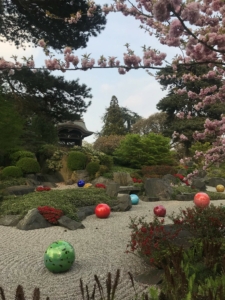 Are there any hidden gems that your classmates should check out?
Are there any hidden gems that your classmates should check out?
- I really enjoyed Kew Gardens, a botanical garden and UNESCO World Heritage Site. You can explore Victorian-style glass conservatories, a royal Japanese pagoda, and vibrant gardens.
- Fleet Street: A historic street vital to London’s development since the Roman times. Start at the original Twinings Tea store that has been in operation for over 300 years. Across the street, you will find the Royal Courts of Justice, the magnificent heart of London’s judicial system. Keep walking down Fleet Street and you will see plenty of plaques on buildings explaining their histories. Fleet Street used to be the center of the British journalism as the main newspapers were based here, from the 1500s-1980s. Walk inside St. Bride’s Church, which is famous for several reasons. First, as you will see in the basement, there is a free museum that showcases living proof of the Roman history excavated beneath the church. Second, architect Sir Christopher Wren (of St. Paul’s Cathedral) designed the steeple of the church. It looks like a wedding cake and is said to have inspired the tiered wedding cake!
- London is renowned for its high quality international cuisine, from Laotian to Ethiopian. I highly recommend Masala Zone for excellent Indian food and Hopper’s for Sri Lankan food. These restaurants are top-rated and thinking about their food continues to make my mouth water!
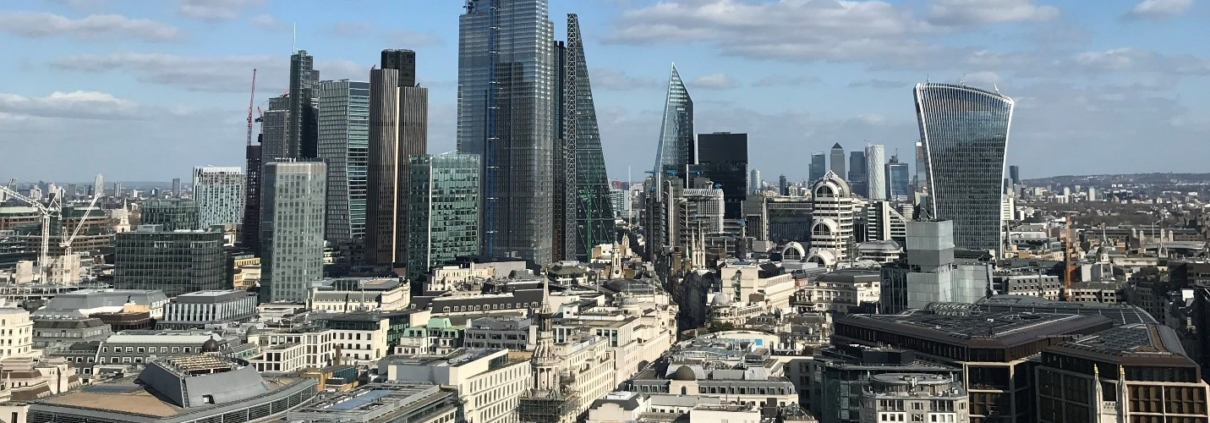

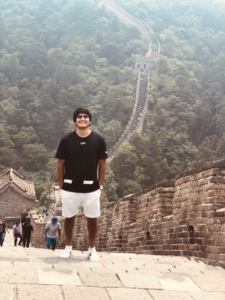
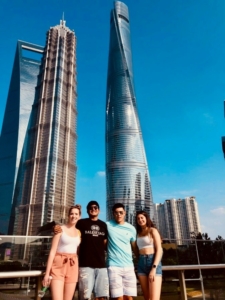 In terms of key takeaways during my overall experience in Shanghai, I was able to learn how to adapt and fit into new global environments with zero knowledge of the local language. The ability to be independent and find your own way through a foreign country is an extremely rewarding experience and it changed my perception of trying new experiences and taking risk in my day to day life. Also, I was able to understand the importance of traveling and learning how different global cultures and working environments differ from one to the other. If you are studying abroad my best tip would be to have an open mind, don’t try compare the differences with your home country. Each experience is different to the other and once you are able to understand the benefits of the city you study abroad in that will be the turning point of making your study abroad experience one of the best experience of your college career.
In terms of key takeaways during my overall experience in Shanghai, I was able to learn how to adapt and fit into new global environments with zero knowledge of the local language. The ability to be independent and find your own way through a foreign country is an extremely rewarding experience and it changed my perception of trying new experiences and taking risk in my day to day life. Also, I was able to understand the importance of traveling and learning how different global cultures and working environments differ from one to the other. If you are studying abroad my best tip would be to have an open mind, don’t try compare the differences with your home country. Each experience is different to the other and once you are able to understand the benefits of the city you study abroad in that will be the turning point of making your study abroad experience one of the best experience of your college career.
